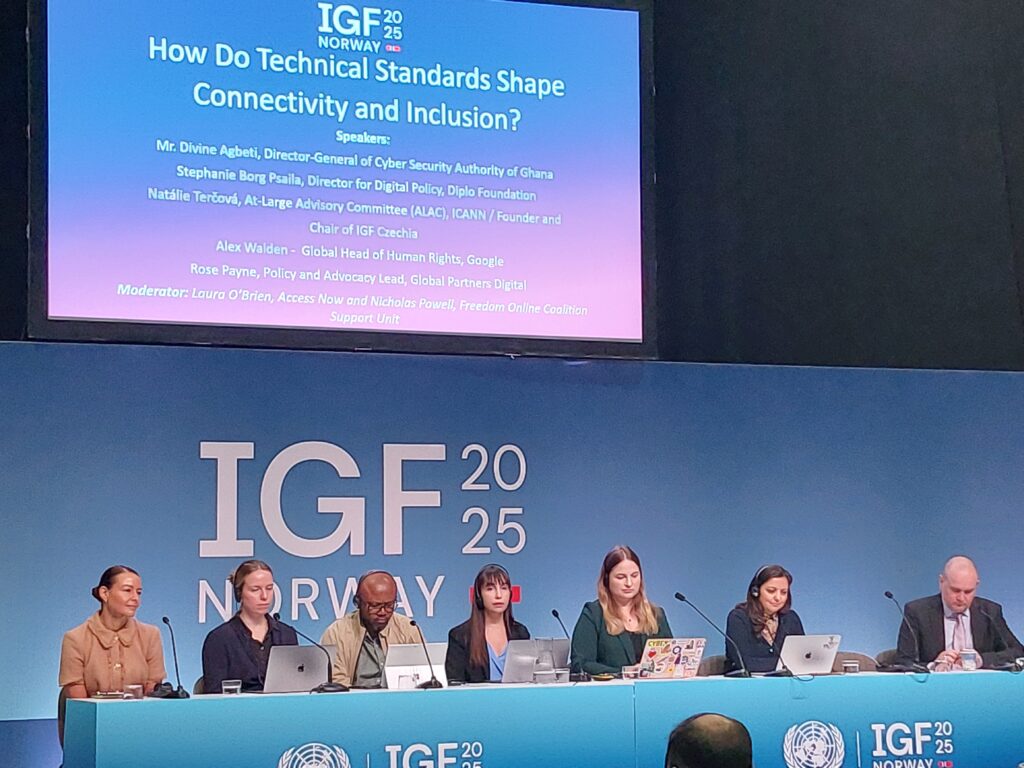How can technical standards bridge or broaden the digital divide?
Behind the scenes of our everyday digital experiences lies a world of technical standards that enable global connectivity and determine who gets to shape the internet’s future—and who is left behind.

At the Internet Governance Forum 2025 in Lillestrøm, Norway, the Freedom Online Coalition convened a diverse panel to explore how technical standards shape global connectivity and inclusion. The session, moderated by Laura O’Brien, Senior International Counsel at Access Now, highlighted how open and interoperable standards can empower underserved communities.
Divine Agbeti, Director General of the Cybersecurity Authority of Ghana, shared how mobile money systems helped bring over 80% of Ghana’s adult population into the digital financial fold—an example of how shared standards translate into real-world impact, especially across Africa. However, the conversation quickly turned to the systemic barriers that exclude many from the standard-setting process itself.
ICANN’s At-Large Advisory Committee member emphasised challenges like high membership fees, lack of transparency, English-only proceedings, and complex technical jargon.
Stephanie Borg Psaila, Director of Digital Policy at Diplo, presented detailed research mapping these hurdles across bodies like ITU, ICANN, and IETF, and called for reforms such as multilingual interpretation, hybrid meeting formats, and adjusted membership models to enable broader civil society participation.

Security and infrastructure governance also featured prominently. Rose Payne, Policy and Advocacy Lead at Global Partners Digital, spotlighted the role of technical standards in safeguarding subsea cables—which carry 95–99% of transnational data—but also pointed to the limitations of technical solutions when facing geopolitical threats.
She underscored the urgency of updating international legal frameworks like UNCLOS and fostering cooperation between governments, the private sector, and civil society. Alex Walden, Global Head of Human Rights at Google, also reaffirmed the private sector’s role in investing in global connectivity while advocating for human rights-based frameworks and inclusive multistakeholder participation.
While the session closed on a constructive note, tensions emerged during the Q&A. Technical community members like Colin Perkins (University of Glasgow) and Harold, a technologist and civil society advocate, challenged the panel’s framing, arguing that distinctions between technical and civil society actors are often artificial and counterproductive.
Panellists responded diplomatically, acknowledging the need for more nuanced engagement and mutual understanding. Despite differing views, the forum concluded with shared commitments: dismantling barriers to participation, building cross-sectoral capacity, and grounding technical governance in international human rights from the outset.
Track all key moments from the Internet Governance Forum 2025 on our dedicated IGF page.
